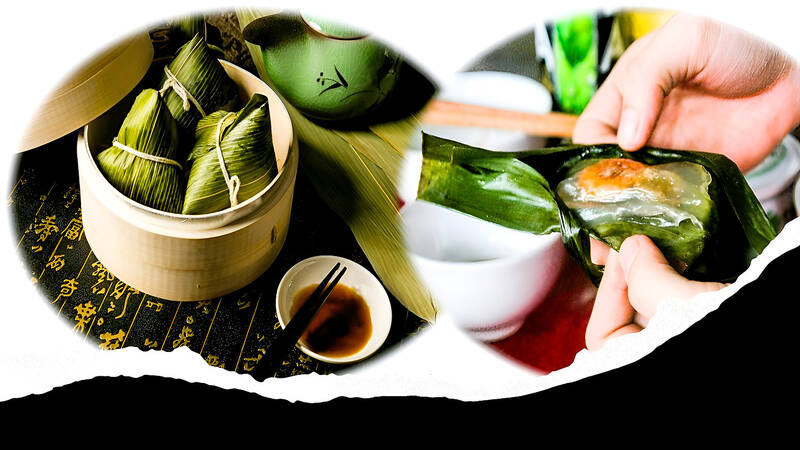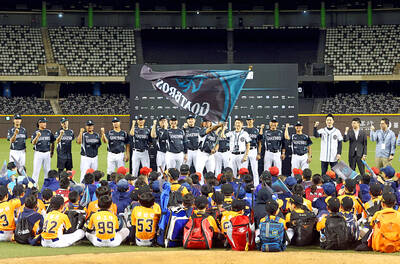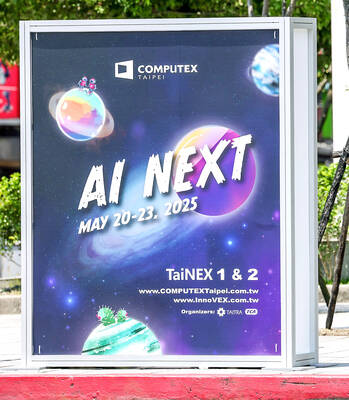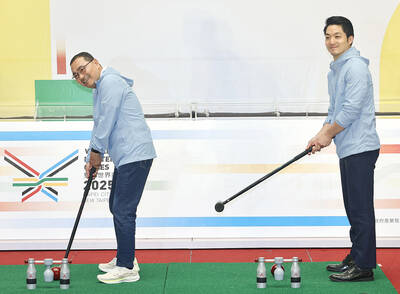對話 Dialogue
清清:下禮拜又是端午節了,我已經先吃了好多粽子了,真是可怕!
Qīngqing: Xià lǐbǎi yòu shì Duānwǔ jié le, wǒ yǐjīng xiān chīle hǎoduō zòngzi le, zhēnshì kěpà!

Photo: Pexels 照片:Pexels提供
華華:你沒聽說過嗎?「每逢佳節胖三斤。」華人的節慶都是以大吃大喝來慶祝的,否則就不像過節了,所以還好啦!
Huáhua: Nǐ méi tīngshuōguò ma? “Měi féng jiājié pàng sān jīn.” Huárén de jiéqìng dōu shì yǐ dàchī dàhè lái qìngzhù de, fǒuzé jiù búxiàng guòjiéle, suǒyǐ huánhǎo la!
清清:謝謝你的安慰!你呢?吃了幾個了?可是你看起來沒胖,難道都還沒吃?
Qīngqing: Xièxie nǐ de ānwèi! Nǐ ne? Chīle jǐ ge le? Kěshì nǐ kànqǐlái méi pàng, nándào dōu háiméi chī?
華華:有啦!只是都胖在你看不到的地方而已。我最喜歡吃湖州粽,也已經吃了好幾個了。
Huáhua: Yǒu la! Zhǐshì dōu pàng zài nǐ kànbúdào de dìfāng éryǐ. Wǒ zuì xǐhuān chī Húzhōu zòng, yě yǐjīng chī le hǎojǐ ge le.
清清:湖州粽只有一塊肉,不如吃南部粽、北部粽,料多味美,百吃不厭。
Qīngqing: Húzhōu zòng zhǐyǒu yí kuài ròu, bùrú chī Nánbù zòng, Běibù zòng, liàoduō wèiměi, bǎichī búyàn.
華華:我喜歡吃單純的味道,所以甜的豆沙粽、冰粽也都很好,客家鹼粽也不錯。
Huáhua: Wǒ xǐhuān chī dānchún de wèidào, suǒyǐ tián de dòushā zòng, bīngzòng yě dōu hěnhǎo, Kèjiā jiǎnzòng yě búcuò.
清清:這真的要看個人的口味。對了,端午節當天我要去看龍舟比賽,就在我家附近,很精彩喔!你要不要一起去?
Qīngqing: Zhè zhēnde yào kàn gèrén de kǒuwèi. Duìle, Duānwǔ jié dāngtiān wǒ yào qù kàn lóngzhōu bǐsài, jiù zài wǒ jiā fùjìn, hěn jīngcǎi o! Nǐ yào búyào yìqǐ qù?
華華:好啊!自己划不了,看人家奪標也很熱血、刺激,那當天早上我就去你家找你囉!
Huáhua: Hǎo a! Zìjǐ huábùliǎo, kàn rénjia duóbiāo yě hěn rèxiě, cìjī, nà dāngtiān zǎoshàng wǒ jiù qù nǐ jiā zhǎo nǐ luō!
翻譯 Translation
Qingqing: Next week is Dragon Boat Festival again. I’ve already eaten so many zongzi, it’s scary!
Huahua: Haven’t you heard the saying, “Every festival you put on three catties.” Chinese festivals are all about feasting, otherwise it wouldn’t feel like a celebration. So, don’t worry about it!
Qingqing: Thanks for making me feel better! How about you? How many have you eaten? But you don’t look like you’ve gained weight. Haven’t you eaten any yet?
Huahua: Of course I have, but I’ve gained weight in places you can’t see. I love eating zongzi from Huzhou, I’ve already had several.
Qingqing: Huzhou zongzi only have one piece of meat in them. It’s better to eat zongzi from the south or north of Taiwan, they have more filling and taste delicious. You never get tired of them.
Huahua: I prefer simple flavors, so sweet bean paste zongzi and ice zongzi are also good. Hakka lye zongzi is not bad, either.
Qingqing: It really depends on what you like. Oh, on the day of Dragon Boat Festival, I’m going to watch the race. It’s near my house and very exciting! Do you want to come with me?
Huahua: Sure! I can’t row myself, but watching others compete is exciting. I’ll come to your house in the morning on that day.
生詞 Vocabulary
1. 粽子 (zòngzi) rice dumplings, zongzi
2. 端午節 (Duānwǔ jié) Dragon Boat Festival
3. 逢 (féng) meet, every time, come upon
4. 斤 (jīn) Taiwanese catty. 1 catty=600g
5. 安慰 (ānwèi) comfort, console
6. 單純 (dānchún) simple, pure
7. 豆沙 (dòushā) red bean paste
8. 划 (huá) row
教材音檔 Audio Files
國立清華大學華語中心提供
By National Tsing Hua University Chinese Language Center:

A: The 2025 World Masters Games will begin on May 17 and run until May 30. B: World Masters Games? A: It’s a quadrennial multi-sport event for people over 30, which will be jointly held by Taipei and New Taipei City. B: Cool, maybe we can go cheer for all the athletes from home and abroad. A: There will be an athletes’ parade in downtown Taipei prior to the opening ceremony on Saturday. Let’s go then. A: 2025雙北世界壯年運動會5月17日開幕,持續至5月30日閉幕。 B: 世壯運? A: 這是四年一度、以30歲以上青壯年為主的運動會,本屆是由台北市和新北市共同舉辦。 B: 好酷喔,我們去幫來自國內外的選手們加油吧! A: 週六在台北市區會有選手遊行,之後是開幕典禮,我們去看吧。 (By Eddy Chang, Taipei Times/台北時報張迪)

Computex, Asia’s biggest electronics conference, kicked off Monday in Taipei, and as in years past drew industry chieftains from Nvidia Corp.’s Jensen Huang and Qualcomm Inc.’s Cristiano Amon to Young Liu of Foxconn, which makes the bulk of the world’s iPhones and Nvidia servers. But while last year’s event was a celebration of the post-ChatGPT AI boom, executives this time are likely grappling with the uncertainty of the Trump administration’s effort to reshape the global trade order — disrupting a decades-old model for tech manufacturing. This year’s exhibition will of course feature the hardware required to bring artificial intelligence to life.

A: Where will the 35 sports of the 2025 World Masters Games be held? B: Apart from Taipei and New Taipei City, some games will take place in Yilan County, Taoyuan County, and Hsinchu County and City. A: The news says about 25,000 people, including many celebrities and sports stars, have already registered for the games. B: Even Taipei Mayor Chiang Wan-an, who is 47, registered for softball and squash. New Taipei Mayor Hou You-yi, who is 68, also registered for table tennis. A: And it will be the largest sports event ever in Taiwan’s history. How exciting. A:

Dog owners often wish they could understand their pets’ thoughts. “Dog buttons” might turn their dream into a reality. These specially designed buttons, __1__ sound chips, enable dogs to communicate their needs by pressing buttons corresponding to pre-recorded words like “walk,” “play,” “outside,” and “food.” This bridges the communication __2__ between humans and their canine companions. The science behind dog buttons is based on the concept of associative learning. It’s a process __3__ learners can link actions with outcomes. For instance, if an owner consistently presses the “walk” button and then takes their dog for a walk, the dog